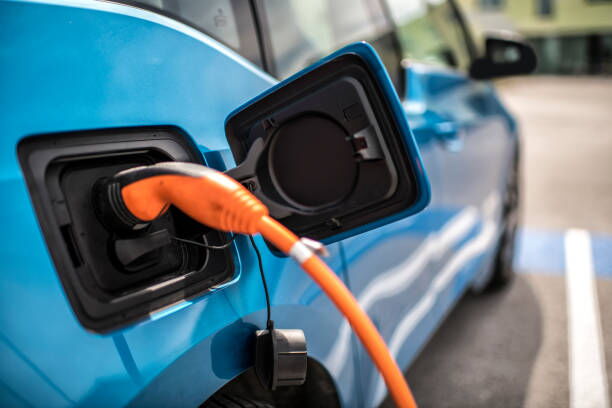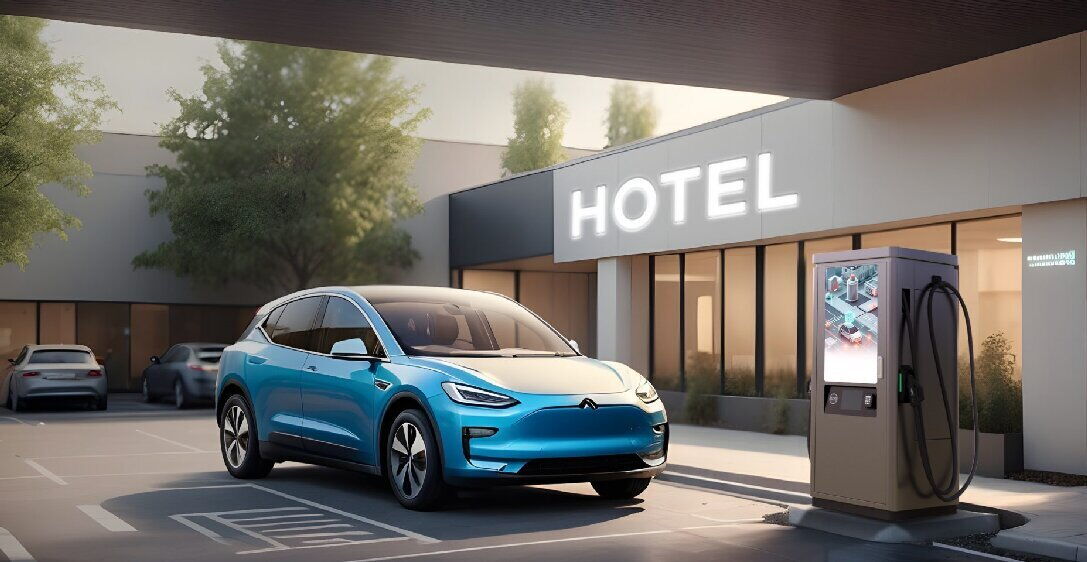As electric vehicles (EVs) continue to gain popularity, the demand for accessible and reliable EV charging solutions has skyrocketed. For businesses eager to capitalize on this growing market, one option that is gaining momentum is white label EV charging. This innovative model allows companies to offer a branded EV charging experience without having to develop the infrastructure and technology from the ground up. In this article, we will explore what white label EV charging is, its benefits, how it works, and how businesses can leverage it to strengthen their brand and provide exceptional services to customers.

At its core, white-label EV charging refers to the practice of utilizing an existing EV charging infrastructure and rebranding it to match your company's identity. Much like private labeling in retail, where products are produced by one manufacturer and sold under another brand's name, white-label EV charging enables businesses to offer EV charging solutions without the need to design, develop, or maintain the technology themselves.
A white-label EV charging solution typically comes with pre-built hardware, software, and network management systems that can be customized with your brand’s logos, colors, and unique features. This model allows businesses—whether they're in the retail, hospitality, or energy sectors—to quickly establish their own branded EV charging network, saving time and money while capitalizing on the growing demand for EV infrastructure.
One of the most attractive advantages of white label EV charging is the speed of deployment. Instead of spending months (or even years) designing and developing the infrastructure, companies can leverage an established platform and launch their network in a matter of weeks or months. This quick turnaround allows businesses to seize market opportunities without delay.
Developing an EV charging infrastructure in-house would require significant investments in personnel, including engineers, technicians, and software developers. By opting for a white-label solution, businesses can bypass these costs, since the infrastructure and software are already developed and ready to be implemented. Maintenance, upgrades, and network monitoring are typically handled by the provider, reducing the need for dedicated in-house resources.
A white-label EV charging solution allows companies to fully brand their charging stations, giving them a unique identity that is instantly recognizable by their customers. Whether it's a retail chain, a hotel, or a utility company, offering a branded charging experience can create an emotional connection with customers and reinforce brand loyalty. As more people drive electric vehicles, a branded charging network can become an important part of a company's overall service offering.
White-label EV charging offers a unique opportunity for businesses to increase customer engagement and loyalty. By offering an essential service like EV charging, you can create a positive customer experience that goes beyond traditional product offerings. For example, a hotel chain that offers branded EV chargers not only provides convenience to guests but also strengthens its commitment to sustainability and customer satisfaction. Over time, this type of service can help create repeat customers and enhance brand reputation.
By outsourcing the development and management of EV charging infrastructure, businesses reduce the risks associated with technology failures, regulatory challenges, and ongoing maintenance. White-label providers typically have years of experience in managing charging networks and staying compliant with ever-evolving laws and standards. This shift in responsibility allows businesses to focus on their core operations while relying on experts to manage the technical aspects of the charging network.

The first step in setting up a white-label EV charging network is the branding and customization process. The white-label provider will work with your company to tailor the user interface, hardware, and software to reflect your brand’s identity. This includes adding your logo, brand colors, and creating a unique user experience that aligns with your company’s values and image. Whether it’s a sleek mobile app or a custom-designed charging station, the possibilities for personalization are endless.
Once the branding is finalized, the next step involves integrating the hardware needed for the EV charging stations. This typically includes the charging units themselves, cables, connectors, and payment systems. White-label providers often use industry-leading hardware that is compatible with various EV models and is designed to handle high volumes of charging. This integration ensures that the charging stations meet both the technical requirements of modern EVs and the business's branding goals.
The software behind the white-label EV charging solution is key to ensuring a seamless and user-friendly experience. From mobile apps to web portals, the software is designed to manage user interactions, payment processing, and the overall performance of the charging stations. Customizable features such as real-time availability tracking, billing, loyalty programs, and customer support portals are typically integrated into the software to enhance the user experience. The software is also crucial for monitoring station performance, handling maintenance issues, and providing analytics on charging patterns.
With hardware and software ready, the deployment and installation process begins. Depending on the type of business, charging stations may be installed in locations such as shopping malls, parking lots, hotels, office buildings, or public spaces. The white-label provider typically handles the installation process, ensuring the chargers are set up and configured to work seamlessly with your network. This step may also include electrical work, ensuring that the stations are properly connected to the grid and meet all local regulatory requirements.
After the chargers are installed, ongoing maintenance and support are crucial for ensuring the continued success of the charging network. White-label providers often offer maintenance packages that include regular updates, software upgrades, and troubleshooting. In the event of hardware malfunctions or software issues, these providers have dedicated support teams ready to respond promptly, ensuring minimal downtime and maximum customer satisfaction. Additionally, many white-label solutions include built-in monitoring tools, allowing businesses to track the health and usage of the chargers in real-time.
Several industries have already embraced the white-label EV charging model to provide sustainable and customer-centric solutions. Here are a few examples of how businesses are integrating white-label EV charging into their operations:
Large retail chains are increasingly installing branded EV chargers at their locations to attract eco-conscious consumers. By offering this service, retailers not only provide a valuable amenity but also position themselves as leaders in sustainability. Shoppers can conveniently charge their EVs while they shop, creating a seamless experience that keeps customers coming back.
Hotels and resorts have also adopted white-label EV charging as a way to attract EV-driving guests. By offering branded charging stations, hotels can differentiate themselves from competitors, enhance their sustainability credentials, and provide an additional service that enhances the overall guest experience. For example, guests can reserve charging spots in advance through a hotel’s app or website, making the process even more convenient.
Companies with large office complexes are installing white-label EV charging stations as part of their sustainability initiatives. Providing employees with access to EV charging not only supports corporate responsibility goals but also improves employee satisfaction and retention. In addition, offering branded chargers can promote a company’s commitment to green energy and environmental stewardship.
While the white-label model offers numerous benefits, it’s important to consider certain challenges when adopting this solution:
Upfront Costs: Even though white-label EV charging can reduce development costs, there may still be initial fees for hardware installation, customization, and network integration.
Regulatory Compliance: Businesses must ensure that their charging stations meet local regulations and industry standards. White-label providers typically handle compliance, but it’s still important for businesses to stay informed about evolving laws and requirements.
Network Management: While white-label providers handle most of the technical aspects, businesses still need to manage customer interactions, such as pricing, loyalty programs, and promotional offers. This requires careful planning and strategy.
White-label EV charging is an innovative solution that allows businesses to tap into the growing electric vehicle infrastructure market without the need for heavy investment in development and technology. By offering fully branded and customizable charging solutions, companies can enhance their brand equity, attract eco-conscious customers, and promote sustainability—all while saving time and reducing operational risks. As the EV market continues to expand, white-label charging will undoubtedly play an increasingly important role in shaping the future of EV infrastructure.
